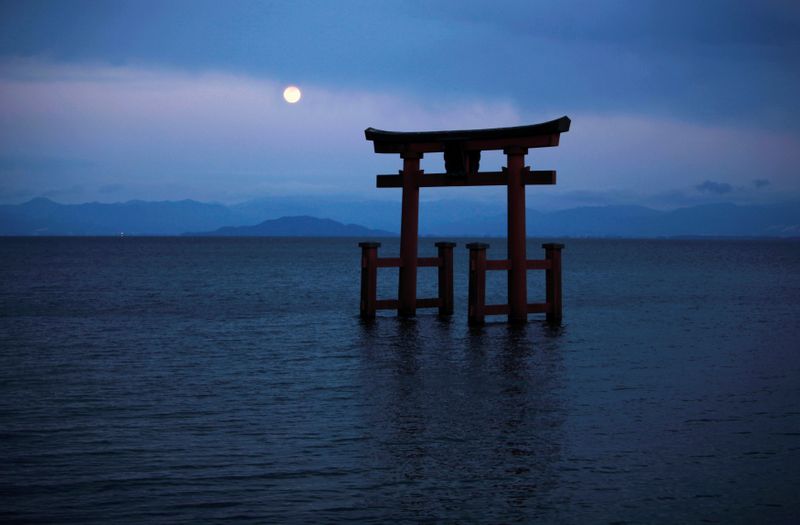By Leika Kihara and Takahiko Wada
TOKYO (Reuters) - In a country only starting to embrace green finance, a small lender based near picturesque Lake Biwa, Japan's largest freshwater lake, is making the most of its early push into environmentally friendly banking.
While Japan's mega banks are among the biggest lenders to the global coal industry, regional Shiga Bank has long supported its local community's efforts to preserve the region's natural habitat.
With Prime Minister Yoshihide Suga pledging to make Japan net carbon-free by 2050, it is broadening its green activities beyond its local prefecture, looking to earn new fees and differentiate itself in a crowded sector, while other small lenders are also chiming in.
"There's clearly more momentum and awareness in Japan on the need to get serious about green finance," said Yoshinobu Shimazaki, general manager of Shiga Bank's sustainable strategy office.
Japan has lagged Europe in promoting green finance due in part to its heavy reliance on fossil fuel, while policymakers are still coming to grips with regulatory standards.
Shiga Bank, however, established its environmental credentials in the 1980s, donating money to local projects such as a water quality research vessel for the 670 sq km (259 square mile) lake in western Japan.
A decade before the United Nations set out its Sustainable Development Goals (SDGs) in 2015, the bank launched its own rating system to gauge how well borrowers were doing with environmentally friendly goods and services.
Nearly 60% of its borrowers now receive loans under the system, which grants lower interest rates for firms with higher grades.
As regional banks suffer from years of ultra-low interest rates, an ageing population and a drift to urban centres, Shiga hopes its green expertise will give it an edge as Japan rushes to meet its carbon-neutral target.
"It's not just about helping the environment but breaking out of traditional banking," said Shimazaki, who is recognised as one of Japan's top experts in the field. "Sustainable finance needs to be profitable. Otherwise, it won't work."
In September, Shiga became Japan's first regional bank to extend a sustainability-linked loan (SSL), which offers rate discounts for promoting green business, with a 500 million yen ($4.8 million) loan to a local firm. SSLs set a higher hurdle for borrowers than Shiga's own ratings system, with targets screened by a third-party.
It also led a 2.5-billion-yen syndicated SSL with 15 other regional banks in November and is currently working on more such loans, bank officials said.
Such efforts have helped Shiga boost its advisory fees, pushing fee earnings up 12% to 2 billion yen ($19 million) in the year to end-March. Fee income was its fastest growing profit centre, making up nearly 26% of total profits.
Japan's environment ministry is now taking steps to promote the sector, setting aside about $1 million in SDGs including to help 11 regional lenders support sustainable finance projects.
Nara Chuo Shinkin Bank, based in western Japan, was chosen for a loan scheme targeting construction of low-emission homes using solar power and built with local cedar trees.
The goal is to revitalise the local forestry industry and support builders of traditional Japanese wooden homes, which are losing market share to cheaper, western-style houses.
"Many small, local companies know little about SDGs. But that needs to change for all of us to survive," said Akio Yamada, who oversees the scheme at Nara Chuo Shinkin. "By affecting the flow of money, banks can help people think green."

($1 = 103.4600 yen)